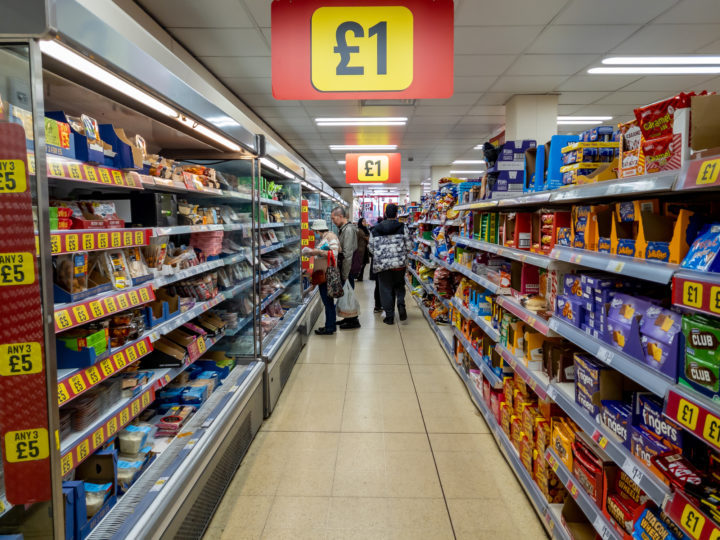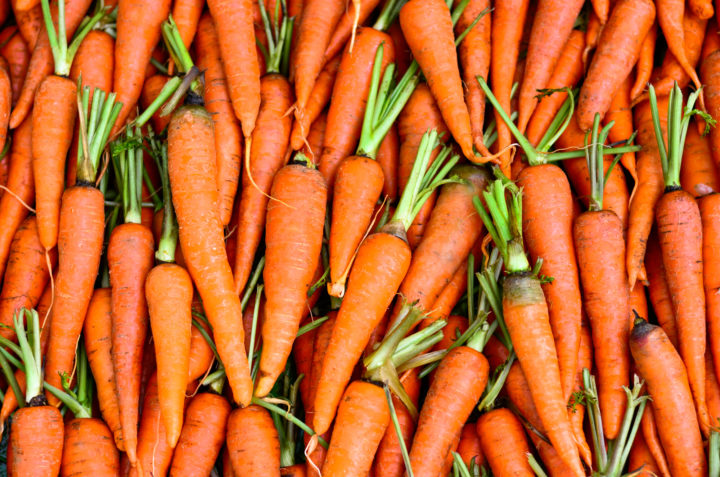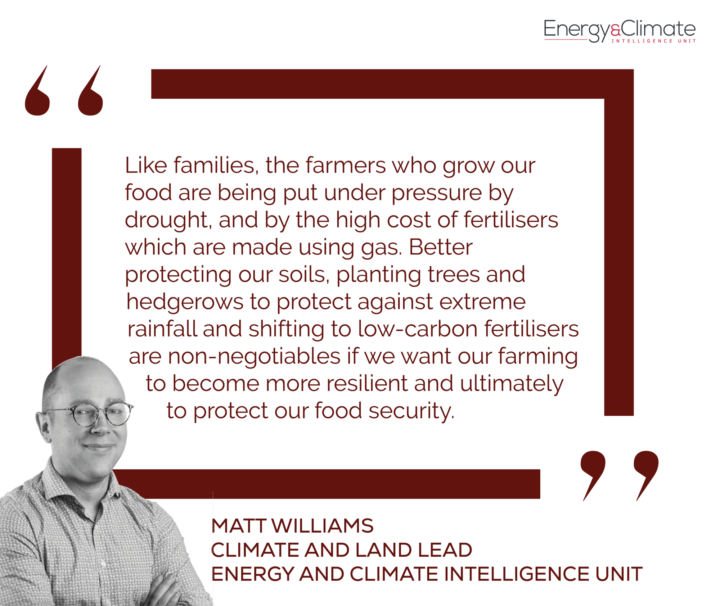Climate change, fossil fuels, and UK food prices
The role potentially played by climate change, as reflected in global temperatures and the increasing cost of fossil fuels.
Last updated:
The global food sector has been hit by a ‘perfect storm’. Following in the wake of the Covid pandemic, agricultural and food supplies have been hit by extreme temperatures, drought and flooding and faced the consequences of the Russian invasion of Ukraine.
The latter has increased energy prices globally; not just oil but also the prices of natural gas and fertiliser. These rising energy costs not only affect the costs at the farm-gate but also throughout the rest of the food supply chain.
The combination has resulted in prices (both nominal and real) of food and agricultural commodities on world markets reaching levels not experienced since the major oil and commodity crisis of 1972-74.
We show that in 2022, climate change and fossil fuel prices could cause food inflation to be around 11%. This translates into an increase in average household monthly spending of £33.90, £14.23 of which is estimated to be due to the effects of climate change and £19.66 due to energy prices, suggesting that the majority of the current increase in food inflation arises from fossil fuel price shocks on world markets. In context, these factors could increase household shopping bills in 2022 by more than £400 per year and the total annual UK food shopping bill by around £11.4 billion.
Looking beyond the current crisis experienced on world markets, both fossil fuels and climate change will continue to be important for UK food prices.
Contribution to the Headline Rate of inflation (July 2020 to July 2022)

What could you buy with the extra costs on food caused by climate change?
£407 is equivalent to 900 bags of carrots.

The UK imports around 40% of its food and agricultural needs from world markets and is therefore particularly prone to these global events. Although much media attention has been paid recently to rising fuel bills for households, food inflation is also a major concern. As of July 2022, food inflation was recorded at 12.7% and is second only to fuel bills in the rising cost of living faced currently by UK households.
There are many factors that can determine food prices for consumers including exchange rates, labour costs and sector specific supply shocks.
Prices in World Oil, Fertilizer and Natural Gas Markets


